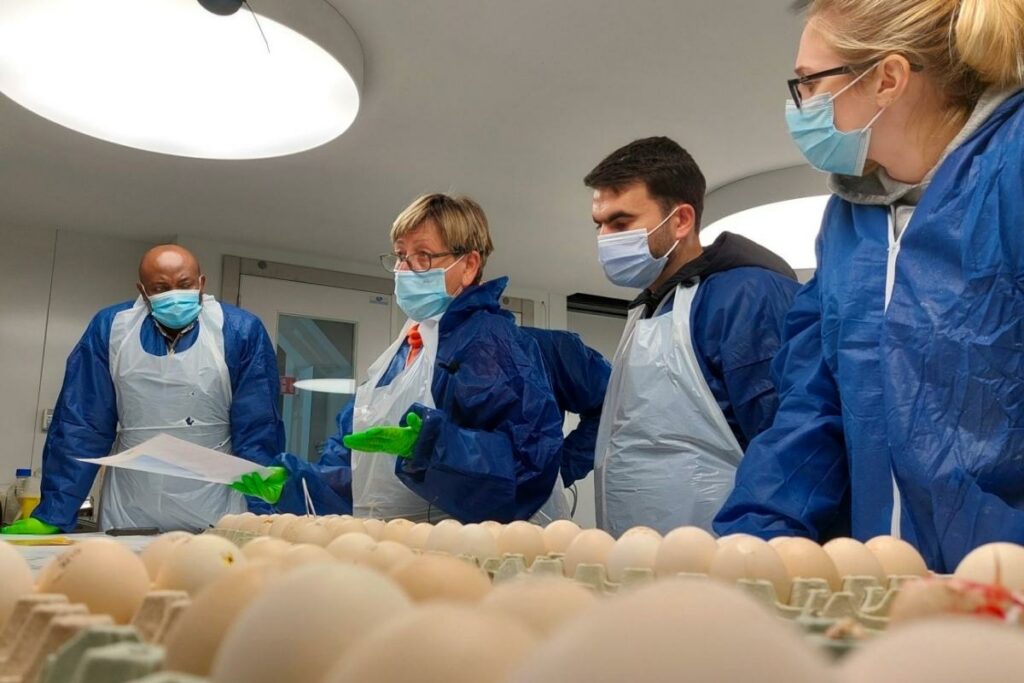
Programme & Courses
The Academic Degree in Poultry Health Sciences is a three years programme offered as an online course supported with in total 5 weeks of onsite practical training and 2 weeks of externship. Online and distance learning offers students the flexibility of studying from anywhere and at any time over the internet.
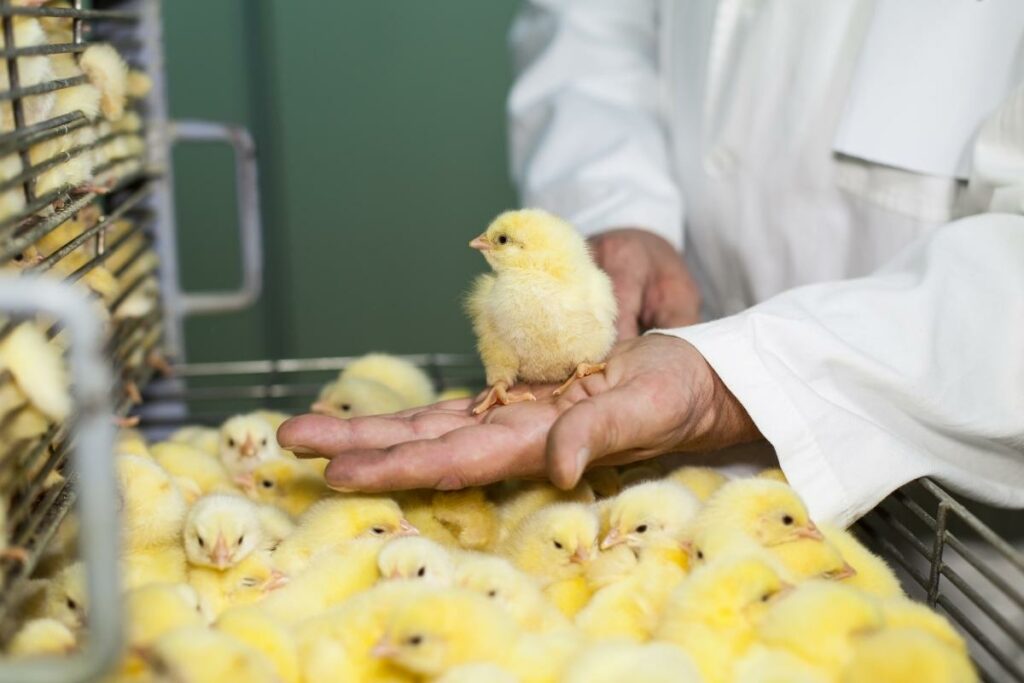
Study Programme
1st YEAR
credits: 10; total student workload: 300h
- Basic Avian Sciences: Embryology, Anatomy, Physiology, Immunology, Breeding & Genetics
- Poultry Production, Management, Husbandry & Biosecurity
- Gut Health & Nutrition
2nd YEAR
credits: 10; total student workload: 300h
3rd YEAR
credits: 10; total student workload: 300h
Testimonial of Postgraduate student
Courses
Year 1
Basic Avian Sciences: Embryology, Anatomy, Physiology, Immunology, Breeding & Genetics
(credits: 4.0; student workload: 120h)
This course will provide knowledge and deeper insights in the basic principles of avian sciences related to the normal structures, functioning and development of the healthy bird in relation to poultry farming.
First, in the section embryology the different developmental steps that occur to attain the normal anatomical and histological configuration of a neonatal chick are discussed. In addition to the normal embryonic development, also the occurrence and origin of congenital malformations and anatomical variations are discussed. Subsequently, this knowledge will be more practically elaborated in the section incubation biology and hatchery management.
Next the normal anatomy relevant to poultry health assessment in practice is discussed. Subsequently, the cellular morphology and the microscopic structure of the four basic tissues: epithelial tissue, connective tissue, muscle tissue and nervous tissue are discussed. Besides, also the physiological processes and the development and maintenance of the innate and adaptive immune mechanisms will be discussed. An important link will be made between normal anatomy, physiology and immunology and poultry farming.
Finally, the students get familiar with the basic principles of genetics, genetic variation and the molecular processes involved. This knowledge will subsequently be more practically elaborated in the section breeding management.

Poultry Production, Management, Husbandry & Biosecurity
(credits: 3.0; student workload: 90h)
This course will make student familiar with all general aspects of poultry farming, including different production systems, poultry management, husbandry and biosecurity.
The first section poultry production and management provides detailed information on poultry farming which provides much information about animals’ health, well-being and production.
The section husbandry of animals aims at making the students familiar with all general aspects of housing of different poultry species, including aspects of climate control.
The primary objective of the section biosecurity is for the student to understand the general principles of preventive hygiene and disinfection at the level of the individual animal, at the level of the epidemiological unit, as well as at the community level.

Gut Health & Nutrition
(credits: 3.0; student workload: 90h)
The course Gut Health and Nutrition will provide a holistic insight in poultry nutrition and gut health.
Animal health and nutrition are interdependent. The interaction between the two is driven by feedmicrobiota-host interactions in the gastrointestinal tract.
A holistic approach to gut health looks at the whole picture, not just focusing on enteric diseases, but working on all contributing factors and considering the complex interactions between different parts: feed, microbiota and host immunity.
In the section Nutrition students will acquire knowledge on the characteristics of common feedstuffs, poultry nutritional requirements, impact of feed formulation, technology and management on poultry health and production.
In the section Gut Health different factors affecting gut health, and mode of action, efficacy and safety of different types of feed additives will be discussed.
This course teaches students how to develop a diagnostic and intervention plan for gut health problems in poultry taking into account the added value to improve gut health and return on investment.
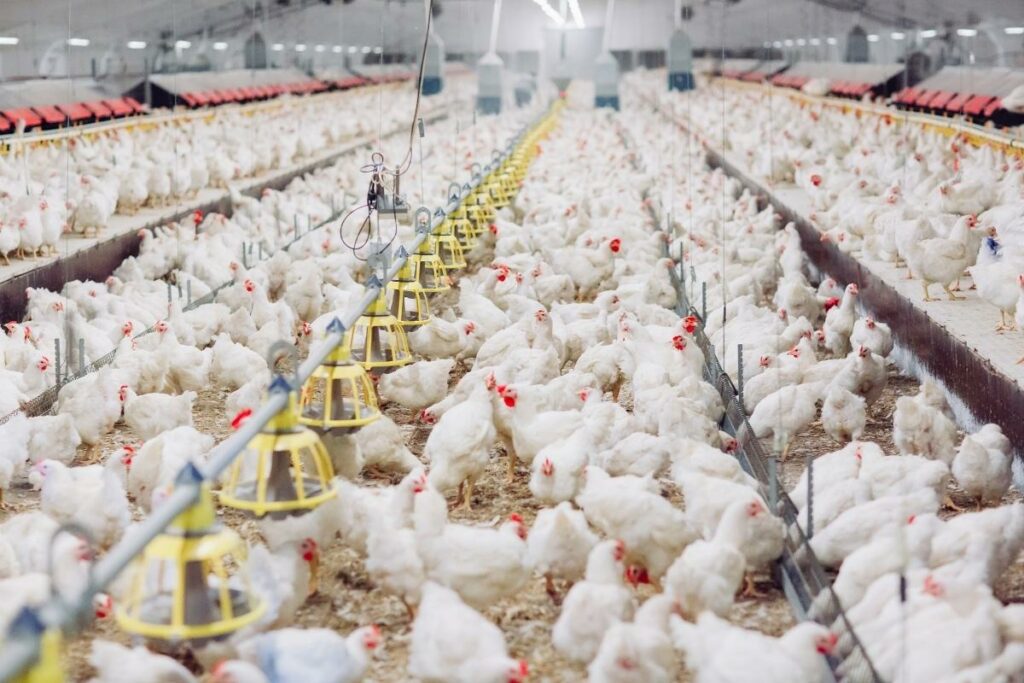
Year 2
Diseases of Poultry
(credits: 4.0; student workload: 120h)
The goal of this course is to provide a comprehensive overview of all types of poultry diseases, including etiology, epidemiology, pathogenesis, symptoms & lesions, diagnosis, treatment and prevention of all major infectious (bacterial, fungal, viral, and parasitic diseases) and non-infectious diseases (nutritional diseases, developmental and metabolic disorders, intoxications) in poultry.
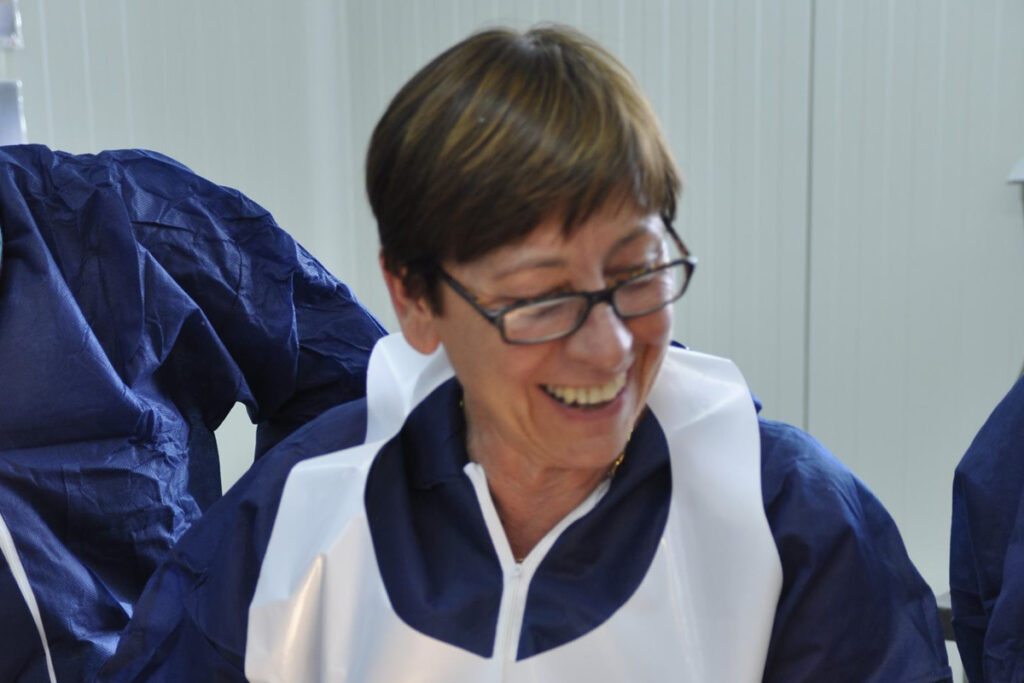
Treatment & Prevention
(credits: 3.0; student workload: 90h)
Disease prevention focuses primarily on dedicated planning and sound management practices that keep infectious diseases out in the first place and prevent the onset of non-infectious diseases.
Besides biosecurity, a good disease control programme also emphasizes on increasing bird resistance to disease by using recommended immunization procedures and to treat disease outbreaks with specific medication.
In the chapter pharmacology students will get familiar with the principles of avian pharmacology including mechanism of action, pharmacokinetics, pharmacodynamics, application of different classes of veterinary drugs.
The section vaccinology discusses the full process from vaccine development to application.
A final part focusses on the use of epidemiology in poultry health sciences to understand, prevent and control poultry diseases.
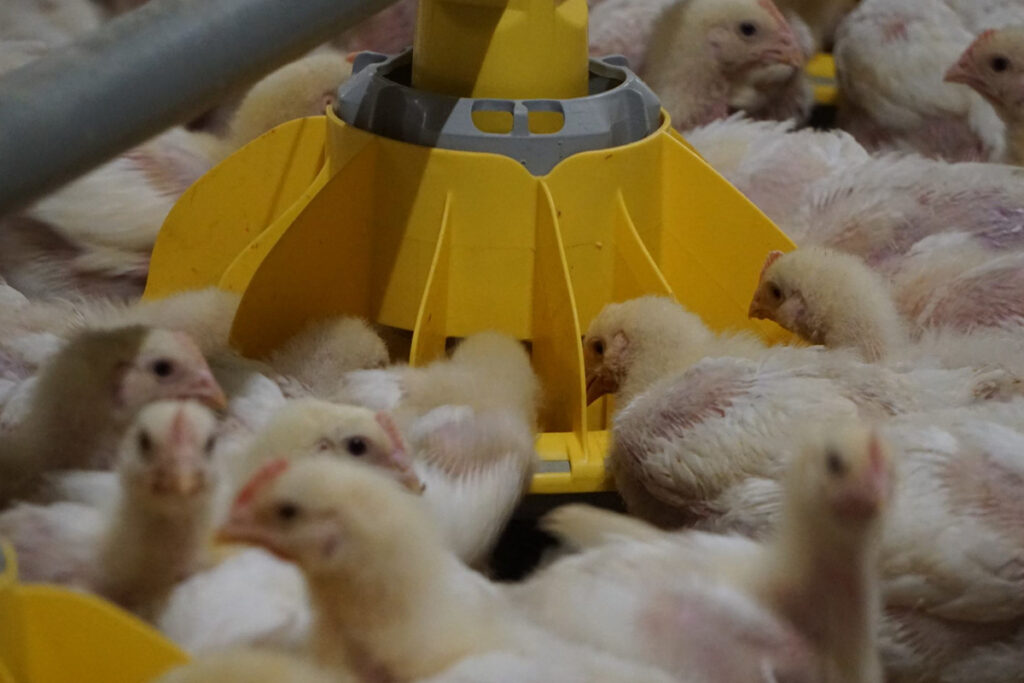
Scientific Methods & Reasoning
(credits: 3.0; student workload: 90h)
This course will make the student familiar with fundamental and applied poultry research, and routine poultry diagnostic methods to improve their scientific thinking skills.
In the section scientific reasoning and communication students will learn about the basic principles of data analysis, processing and interpretation, how to write a research project proposal and a scientific manuscript, and finally how to present scientific data.
Subsequently, in the chapters scientific methodology and diagnostics students are introduced to the basics of different methods frequently used in poultry research and diagnostics, respectively.

Year 3
Poultry Behaviour & Welfare
(credits: 3.0; student workload: 90h)
Animal welfare is becoming an increasingly important aspect of the business of producing poultry meat or eggs.
Poultry welfare matters for both ethical and practical reasons. From an ethical perspective, poultry have a sufficient degree of awareness or “sentience” to suffer pain if their health is poor, or deprivation if they are poorly housed. From a practical viewpoint, consumers value poultry welfare, so better market access may be obtained by producers who ensure good welfare in their flocks.
Therefore, this course teaches students fundamental and applied knowledge about poultry behaviour and welfare. Additionally, in the section laboratory animal science standards and challenges of keeping poultry as laboratory animals are explained. Finally, in the section public understanding and attitudes towards poultry farming the consumers perception of poultry production is discussed.
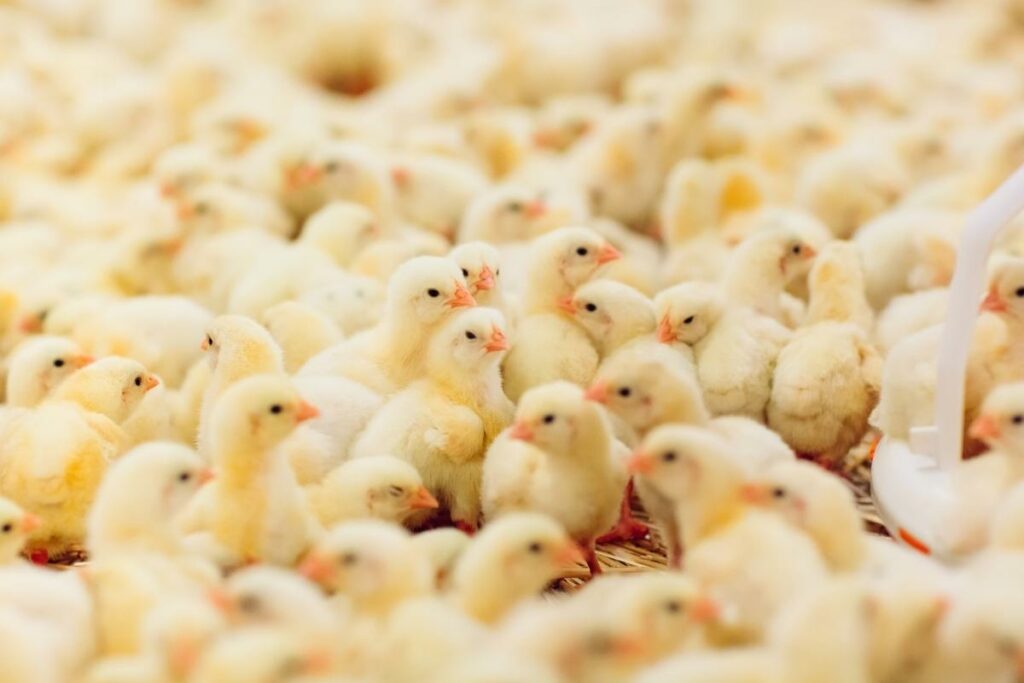
Food Safety
(credits: 3.0; student workload: 90h)
Good food safety practices throughout the food production chain from “farm to fork” will minimise the chance of contamination of our food and also minimise, or even eliminate, the impact of contamination that has already occurred.
Therefore, the objective of this course is to provide the students’ knowledge and deeper insights in the poultry food production chain and controlling food safety hazards.
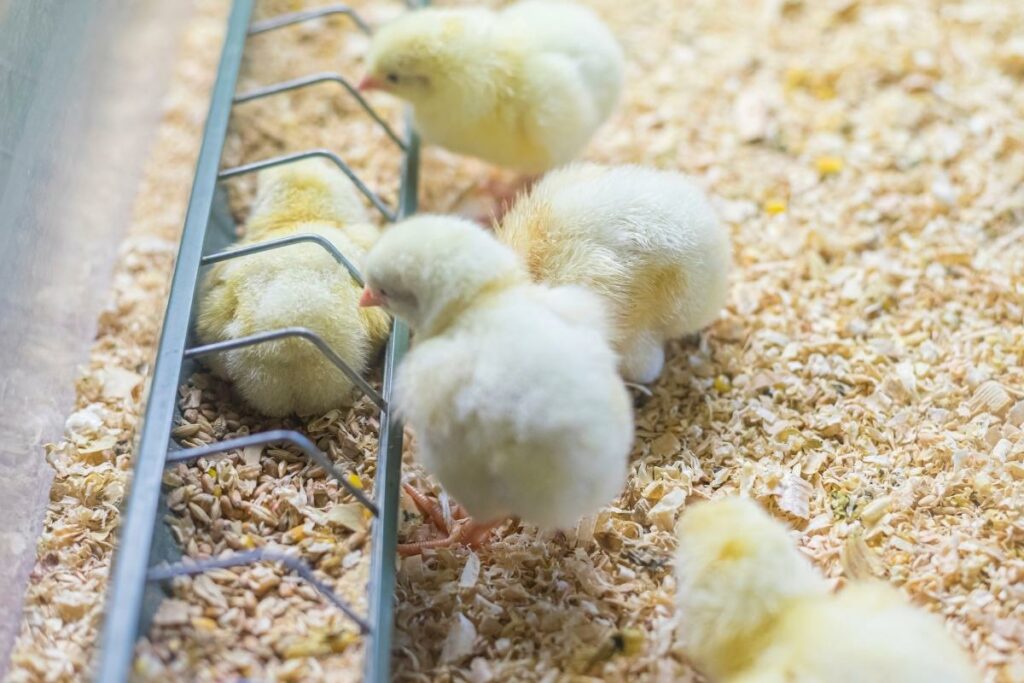
Externship
(credits: 4.0; student workload: 120h)
The externship is a major keystone of the academic degree in Poultry Health Sciences.
During the externship and associated scientific report a student proves his/her acquired knowledge related to poultry health sciences, analytical and synthesizing abilities, critical -reflective attitude and display of problem-resolving capabilities.
The students can follow and participate in poultry research and/or poultry health and disease monitoring.
The externship can take place in applied and/or clinical poultry research laboratory at an academic institution or a research institution from the private or public sector, or a poultry health services laboratory which provide veterinary and food safety related testing, or a poultry veterinary practice, both at home and abroad.
The externship can take various forms, including applied poultry research, clinical poultry research, poultry diagnostics, and poultry veterinary services.

Practical trainings
Practical trainings are organised by Ghent University in collaboration with Vetworks.
Note: Vetworks can assist students to book their accommodation for the practical trainings and exams.
